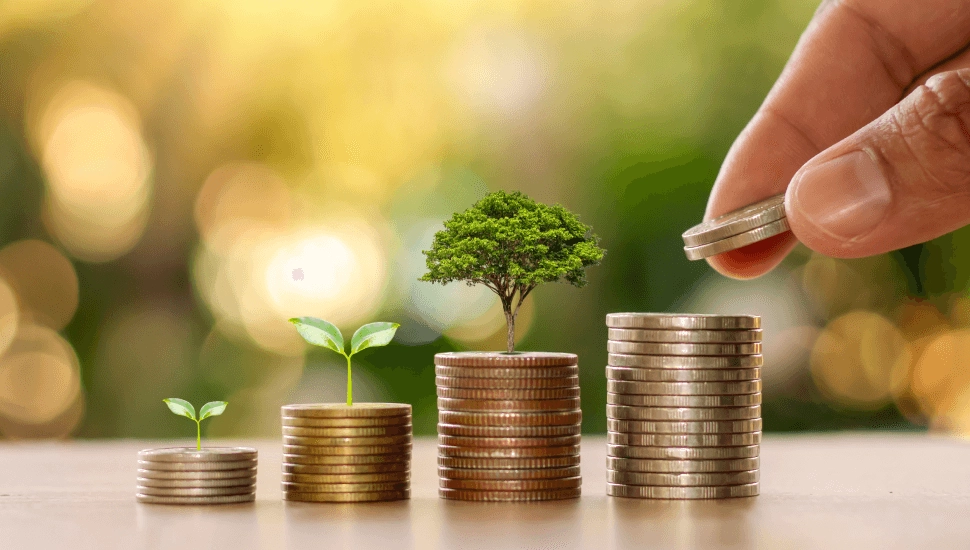Ghana’s green banking has witnessed a major leap as green financing and environmental risk considerations take center stage.
The Bank of Ghana (BoG) has disclosed that compliance with the Ghana Sustainable Banking Principles has surged dramatically, reaching 73.6% as of the first quarter of 2025, up from 42.2% in 2021. This leap represents growing integration of environmental, social, and governance (ESG) considerations into core banking operations.
Speaking at a session focused on the construction sector under the Ghana Sustainable Banking Principles, Second Deputy Governor of the BoG, Matilda Asante-Asiedu, highlighted that the compliance progress reflects a meaningful shift towards sustainable banking. She called on all regulated financial institutions to further align their operations with sustainability standards to ensure long-term institutional and national resilience.
“The Bank of Ghana facilitated the training of all 22 commercial banks on sustainable banking principles. The average compliance rate has been on an upward trajectory from 42.2 percent to 73.6 percent. We are seeing a major shift in how banks view climate risk and sustainability.”
Matilda Asante-Asiedu
Banks Urged to Embed Climate Risk in Decision-Making
The BoG is increasingly emphasizing that climate risk must be treated as a critical financial risk—rather than a peripheral concern. The central bank is urging all banks and regulated institutions to integrate climate-related risk assessments into their credit, investment, and operational frameworks. This is seen as essential not only to safeguard the financial system from environmental shocks but also to contribute to Ghana’s broader national climate commitments under the Paris Agreement.
Madam Asante-Asiedu stressed that ignoring climate risk could lead to stranded assets, operational disruptions, and reduced asset values, particularly in sectors vulnerable to environmental changes. She explained that financial institutions must reassess their portfolios and direct capital into sectors and projects that enhance resilience and reduce carbon footprints.

Among the sectors under review, construction has emerged as one of the most carbon-intensive industries in Ghana. The BoG’s recent engagements have focused on how banks can influence the sector’s sustainability trajectory by channeling funding into green buildings, eco-friendly materials, and climate-resilient infrastructure.
“The construction sector presents both risk and opportunity. By directing capital toward environmentally sustainable projects, banks can play a transformative role in building climate-resilient infrastructure while minimizing their exposure to stranded assets.”
Matilda Asante-Asiedu
With increasing urbanization and infrastructure development demands, the construction sector holds significant potential to either accelerate or mitigate climate change impacts. As such, aligning financing decisions with environmental standards can have a ripple effect across the economy.
Training and Capacity Building Drive Compliance
The rise in compliance levels can be attributed in part to targeted training and capacity-building initiatives spearheaded by the BoG. All 22 commercial banks operating in Ghana have undergone training on sustainable banking principles, equipping them with the knowledge and tools to embed ESG frameworks into their daily operations.
The BoG’s efforts are consistent with global trends where financial regulators are taking proactive steps to build green, resilient, and inclusive financial systems. Institutions that fail to integrate climate risk may face reduced competitiveness and access to international capital markets, where ESG benchmarks are increasingly a prerequisite.
The BoG’s green finance agenda is not only about compliance—it is part of a long-term vision to create a resilient financial system that contributes to Ghana’s environmental and developmental goals. By embedding sustainability into lending, investment, and governance processes, the financial sector can catalyze broader economic transformation.
As Ghana positions itself to meet climate targets and sustainable development goals (SDGs), the banking sector’s embrace of green finance will be instrumental in shaping an economy that is not only growth-oriented but also climate-conscious.
With over 73% of the sector now aligned with the sustainable banking principles, the path toward a greener, more resilient financial ecosystem in Ghana is increasingly within reach.
READ ALSO: Fireworks on GSE: Clydestone Ghana Rockets 11% as TotalEnergies Crashes Nearly 10%



















